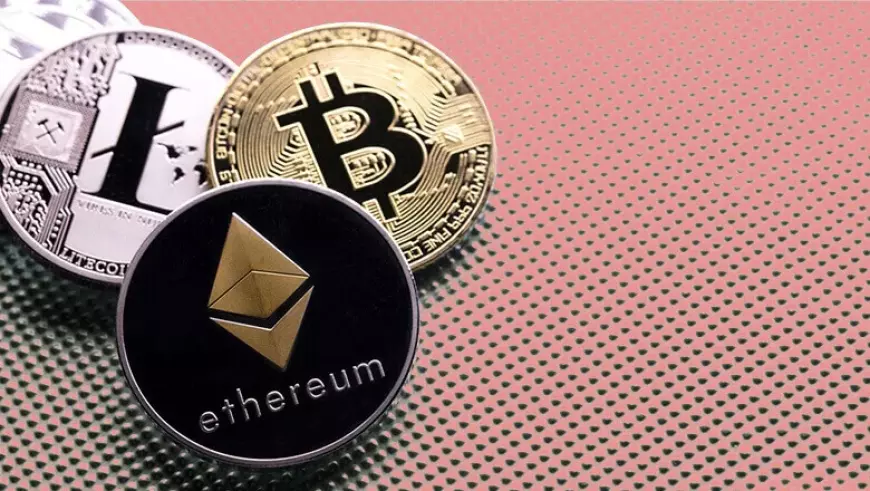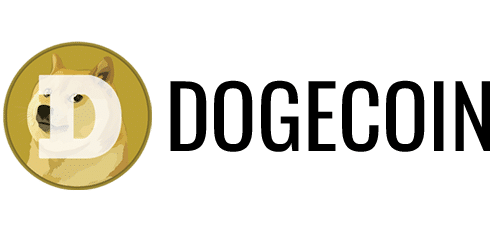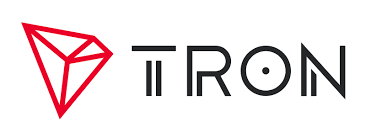Best 10 altcoins for 2024 - A Comprehensive Overview
Discover the top 10 altcoins to watch in 2024 for potential investment opportunities and growth in the cryptocurrency market.

The understanding of what constitutes an altcoin has evolved since the early days of cryptocurrency when only a few digital assets existed apart from bitcoin (BTC). Initially, anything other than bitcoin was labeled an altcoin.
Presently, the landscape of crypto assets is much broader, encompassing a diverse range of coins and tokens with various use cases beyond mere mediums of exchange, distinguishing them from bitcoin competitors.
Nevertheless, despite the expanding diversity, the fundamental definition of an altcoin remains unchanged: any cryptocurrency asset other than bitcoin.
Here, we present the top 10 altcoins based on market capitalization, excluding stablecoins. Stablecoins, designed to maintain a stable value, are typically not considered speculative investments and are thus omitted from this list.
Best 10 altcoins

Read Digimagg's Review
With a market capitalization of $362.2 billion, Ethereum holds a significant portion of the total market capitalization of over $2.6 trillion, encompassing more than 26,000 available crypto assets. Unlike bitcoin, which is often described as a "decentralized currency," Ethereum functions as a distributed computing network. It provides users with the ability to utilize the blockchain for running decentralized applications (dApps) and hosting smart contracts.
According to Walker Holmes, vice president of the metaverse platform MetaTope, while Bitcoin serves primarily as a store of value, Ethereum serves as a decentralized platform for innovators to shape the future of blockchain technology. Critics of Ethereum often cite high transaction fees. However, given the multitude of applications and other cryptocurrencies built on its blockchain, Ethereum is expected to remain a significant player in the crypto space.
 Smart contract functionality
Smart contract functionality Large developer community
Large developer community First-mover advantage
First-mover advantage.png) Environmental impact
Environmental impact.png) Competition from rival blockchains
Competition from rival blockchains.png) Security concerns
Security concerns
Read Digimagg's Review
With a market capitalization of $86.2 billion, BNB functions as a utility token offering benefits like discounted trades and payment for trading fees on the Binance exchange. Moreover, BNB can be utilized beyond the Binance crypto platform for tasks such as payment processing and booking travel arrangements.
Critics argue that BNB lacks the same degree of decentralization as other alternative cryptocurrencies. Nonetheless, the rising value of BNB has contributed to increased investor enthusiasm in the exchange since its surge in popularity began in 2021.

 Utility token
Utility token Discounts and benefits
Discounts and benefits Diverse use cases
Diverse use cases.png) Centralization
Centralization.png) Regulatory risks
Regulatory risks.png) Dependency on Binance exchange
Dependency on Binance exchange
Read Digimagg's Review
With a market capitalization of $66.1 billion, Solana was created to support decentralized finance, applications, and smart contracts. It operates on a distinctive hybrid mechanism combining proof-of-stake and proof-of-history to ensure fast and secure transaction processing.
Solana stands out as one of the swiftest blockchains available. However, it has drawn criticism for its perceived centralization, characterized by a limited number of validating nodes compared to Ethereum, according to Whitney Setiawan, a research analyst at the digital assets exchange Bitrue. According to Holmes, Solana offers high scalability and minimal fees but has encountered instances of outages and downtime.

 Ecosystem growth and adoption
Ecosystem growth and adoption Developer-friendly environment
Developer-friendly environment Low transaction fees
Low transaction fees.png) Interoperability challenges
Interoperability challenges.png) Security and resilience
Security and resilience.png) Relatively new and experimental
Relatively new and experimental
Read Digimagg's Review
With a market capitalization of $29 billion, XRP is utilized to facilitate currency exchanges through digital technology alongside payment processing company Ripple Labs. Established in 2012, Ripple Labs stands as a longstanding entity in the rapidly evolving cryptocurrency realm. Despite numerous coins emerging and disappearing over the past decade, Ripple Labs and its digital asset, XRP, have maintained their esteemed position within the crypto community.
In fact, XRP's XRP Ledger introduced the pioneering concept of a decentralized exchange (DEX), featuring a protocol enabling custom tokenization. Renowned for its open-source nature, this technology is also recognized for its eco-friendliness compared to competing cryptocurrencies, potentially contributing to its widespread appeal.

 High transaction speed
High transaction speed Low transaction costs
Low transaction costs Scalability
Scalability.png) Centralization concerns
Centralization concerns.png) Regulatory uncertainty
Regulatory uncertainty.png) Dependency on Ripple's success
Dependency on Ripple's success
Read Digimagg's Review
With a market capitalization of $15.8 billion, Cardano embraced the proof-of-stake consensus mechanism early on, expediting transaction processing by eliminating the competitive and energy-intensive problem-solving aspect seen in platforms like bitcoin.
"Cardano is a trailblazer in the field, having laid the groundwork for proof-of-stake consensus mechanisms," states Holmes. "ADA represents a blockchain solution offering low fees and heightened security compared to many of its peers." However, according to Daniel Logvin, CEO of blockchain network provider and consultancy LedgerByte, the altcoin made lofty promises but has yet to fulfill them.

 Scientific approach
Scientific approach Scalability and interoperability
Scalability and interoperability Proof-of-stake consensus
Proof-of-stake consensus.png) Development progress and adoption
Development progress and adoption.png) Competition from established platforms
Competition from established platforms.png) Ecosystem and DApp development
Ecosystem and DApp development
Read Digimagg's Review
With a market capitalization of $21.5 billion, Dogecoin originated as the original meme coin, initially conceived as a joke in 2013. However, due to its dedicated community and creative memes, it has swiftly emerged as a notable cryptocurrency.
Richard Gardner, CEO of financial software provider Modulus Global, highlights that DOGE has garnered support from significant backers but remains riskier in comparison to bitcoin. "Altcoins like DOGE can experience significant fluctuations in value due to market volatility since they have yet to demonstrate real-world utility," explains Garry Krugljakow, founder of 0VIX Protocol, a decentralized application facilitating crypto lending and borrowing.

 Community and culture
Community and culture Low transaction fees and fast transactions
Low transaction fees and fast transactions Simple and accessible
Simple and accessible.png) Limited use cases and development
Limited use cases and development.png) Scalability and network congestion
Scalability and network congestion.png) Price volatility and speculation
Price volatility and speculation
Read Digimagg's Review
With a market capitalization of $13.5 billion, Shiba Inu is an Ethereum-based meme coin introduced in 2020. Created by an anonymous developer known as "Ryoshi," the coin aimed to explore the feasibility of an organization operating without centralized leadership. With prominent figures in the crypto community such as Elon Musk and Vitalik Buterin endorsing it, Shiba Inu seems to be validating Ryoshi's vision.
In October 2021, Shiba Inu briefly surpassed Dogecoin as the world's most valuable meme coin in terms of market capitalization. Moreover, some specialized retailers have begun accepting the coin as payment, following its popularity among cryptocurrency investors. However, efforts by the Shiba Inu community to persuade McDonald's to adopt the coin as a form of payment through organized social media campaigns ultimately proved unsuccessful.

 Low price and high supply
Low price and high supply Community and meme status
Community and meme status Decentralized ecosystem
Decentralized ecosystem.png) Highly speculative and volatile
Highly speculative and volatile.png) Limited utility and use cases
Limited utility and use cases.png) Risks of unaudited projects
Risks of unaudited projects
Read Digimagg's Review
With a market capitalization of $13.2 billion, Avalanche was designed as a layer-one blockchain to support decentralized applications (dApps) and other networks. It has emerged as one of Ethereum's primary competitors in the altcoin space. Particularly, the AVAX network aims to challenge Ethereum's dominance as the preferred blockchain for smart contracts. It seeks to achieve this by enhancing transaction throughput without compromising scalability.
Similar to Ethereum, Avalanche addresses Vitalik Buterin's blockchain trilemma, which involves balancing security, scalability, and decentralization. According to the trilemma, developers typically have to compromise one of these components to optimize the other two. Avalanche tackles this challenge by employing three interoperable blockchains within its development framework.

 High throughput and low latency
High throughput and low latency Scalable and interoperable
Scalable and interoperable Customizable blockchain networks
Customizable blockchain networks.png) Competition and market adoption
Competition and market adoption.png) Network security and decentralization
Network security and decentralization.png) Regulatory risks
Regulatory risks
Read Digimagg's Review
With a market capitalization of $10.2 billion, this cryptocurrency fuels the Polkadot ecosystem, where developers have the opportunity to construct purpose-specific blockchains linked as spokes to the primary Polkadot blockchain hub, according to Max Thake, co-founder of peaq, a blockchain network operating on Polkadot. DOT serves as the native token for Polkadot.
Thake notes that there is a consistent demand for DOT from projects seeking to develop on Polkadot. This altcoin possesses enhanced shared security and stands out as a frontrunner in developer engagement and numerous projects, as stated by James Wo, CEO of Digital Finance Group, a blockchain and cryptocurrency investment firm. However, Wo also highlights that project advancement has been sluggish, and the ecosystem lacks standout applications to drive growth.

 Security
Security Governance and upgradability
Governance and upgradability Interoperability
Interoperability.png) Centralization concerns
Centralization concerns.png) Competition from other platforms
Competition from other platforms.png) Reliance on parachain slots
Reliance on parachain slots
Read Digimagg's Review
With a market capitalization of $10.7 billion, Tron was established in Singapore back in 2017. By December 2021, it had evolved from being a decentralized blockchain to becoming a fully decentralized autonomous organization (DAO). Currently, Tron boasts over 167 million accounts.
Initially valued at just $0.0025 upon its launch, the cryptocurrency's value surged to $0.137 by early 2024, marking a remarkable increase of 5,380%. This exponential growth has positioned Tron as one of the rapidly expanding cryptocurrencies globally.

 High throughput
High throughput Developer-friendly environment
Developer-friendly environment Scalability and energy efficiency
Scalability and energy efficiency.png) Centralization concerns
Centralization concerns.png) Adoption and ecosystem growth
Adoption and ecosystem growth.png) Interoperability and compatibility
Interoperability and compatibility







































.png)








